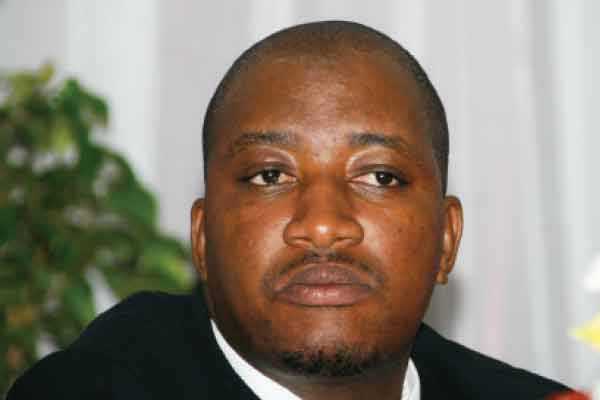Fidelis Molao and the many rivers to cross
Despite desperate attempts by some quarters including the Minister of Education, Unity Dow to trivialise the Sebina issue, it is becoming clear that they must scramble for better ways to keep skeletons locked in the closet. Desperate times call for desperate measures. Clearly the multi-pronged underhand tactics deployed to make the issue 'disappear' from the radar of topical issues are not bearing any fruits. May be some other time.
The Sebina issue is particular in the sense that it speaks loud to a wide spectrum of issues. It is not only about the helpless position that the rural girl-child often finds herself in, but it is also about political indignity that we continue to endure at the hands of politicians. This indignity comes in various forms but it is best captured in the common expression that “Batswana forget easily.” Unfortunately, despite this statement remaining unproven, it has come to be admitted as an undeniable ‘fact’ that explains our political psychology. Sad enough, we continue to do very little to invalidate this humiliating ‘hypothesis.’ Rather, we continue to reinforce it by finding our vote worth a packet of Minestrone soup. The oddity lies in that, this anomaly has come to be the ‘new normal’ and even pursued aggressively as a matter of government policy.
This popular view that we forget easily and the now entrenched sense of impunity amongst our leaders may be a partial explanation to the answer repeatedly given by the Assistant Minister of Education, Fidelis Molao on his alleged role in this matter. Molao has gone on record to allege that a “fake account had been created to generate the fictitious conversation” and that he has reported the matter to the police and has even handed over his phone to them. Summarily, Molao is dismissing authenticity of the alleged conversation. From a security point of view, this is where the story gets interesting, perhaps too interesting.
Let us start with what is possible with Facebook. It is indeed possible to create a ‘pseudo’ Facebook account or even multiple of such accounts because there is no method for verifying anyone’s actual identity on Facebook or any other social media site simply by viewing the profile page online. These would have to be totally new accounts. But, this is very different from claiming that an already existing Facebook account has been ‘faked’ or recreated to exist in the same Facebook platform. I am not aware of this security loophole and doubt even Mark Zuckerberg is, because ‘ideally’ every Facebook account has unique security credentials associated to it.
The same applies to web mail accounts. It is not possible to have same email addresses existing on the same emailing platform. Then to negate or confirm the ‘fake account’ claim forensic experts would have to get from Facebook, the access logs for the account. This would include the creation date and time for the profile and the IP address that was used to access the Internet to create the profile. Having the subscriber information would potentially show that the subscriber for the IP address at the time of the posting or account creation is the same as the person who made the posting.
The second way to get evidence from Facebook via consent is when the owner of the profile gives consent for the profile to be accessed for the purpose of collecting information from the profile. If you are able to get consent to access the profile by logging into the profile with the provided username and password, it is best to have a third party such as a forensic examiner, perform the collection of the data. When you have access to the profile, you can use the Download Archive function on their Facebook Accounting Settings page to download everything in the profile.
In many cases Facebook users also receive notifications on their smart phone or pad computers in addition to the computer they use. All of this can potentially be recovered using forensic tools such as XRY of which I am confident is available to Botswana Police Service. Forensic tools can allow an examiner to recover web pages from a computer hard drive and show them in their original condition. If recovery of the actual page is not possible, other pages from the profile may be recoverable to establish that the person is the owner of the profile and accesses it on a regular basis.
Also, the Internet history from the computer may also provide dates and times that the Facebook profile were accessed from the computer. The challenge with any kind of electronic or digital evidence is authenticating the evidence so it can stand as a foundation for admittance of the evidence in a court of law. This foundation from a technical perspective involves being able to show the court that the evidence is identical to the original and was collected in a forensically sound manner.






